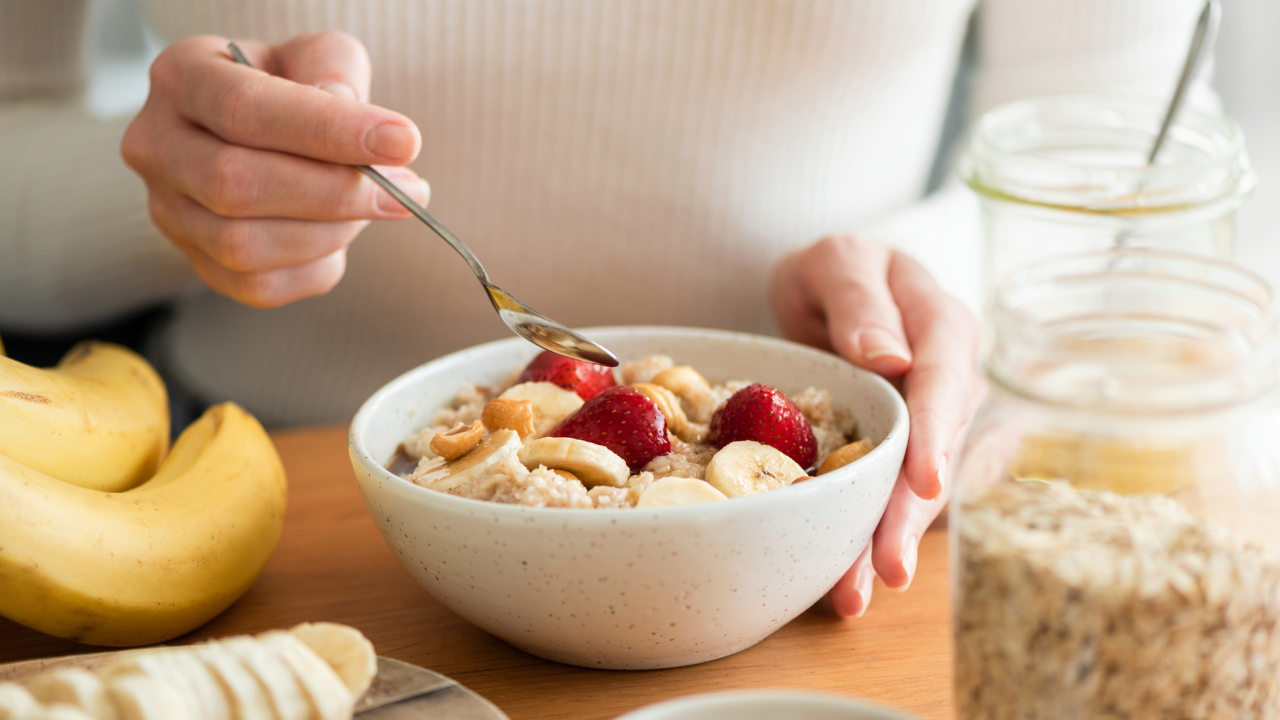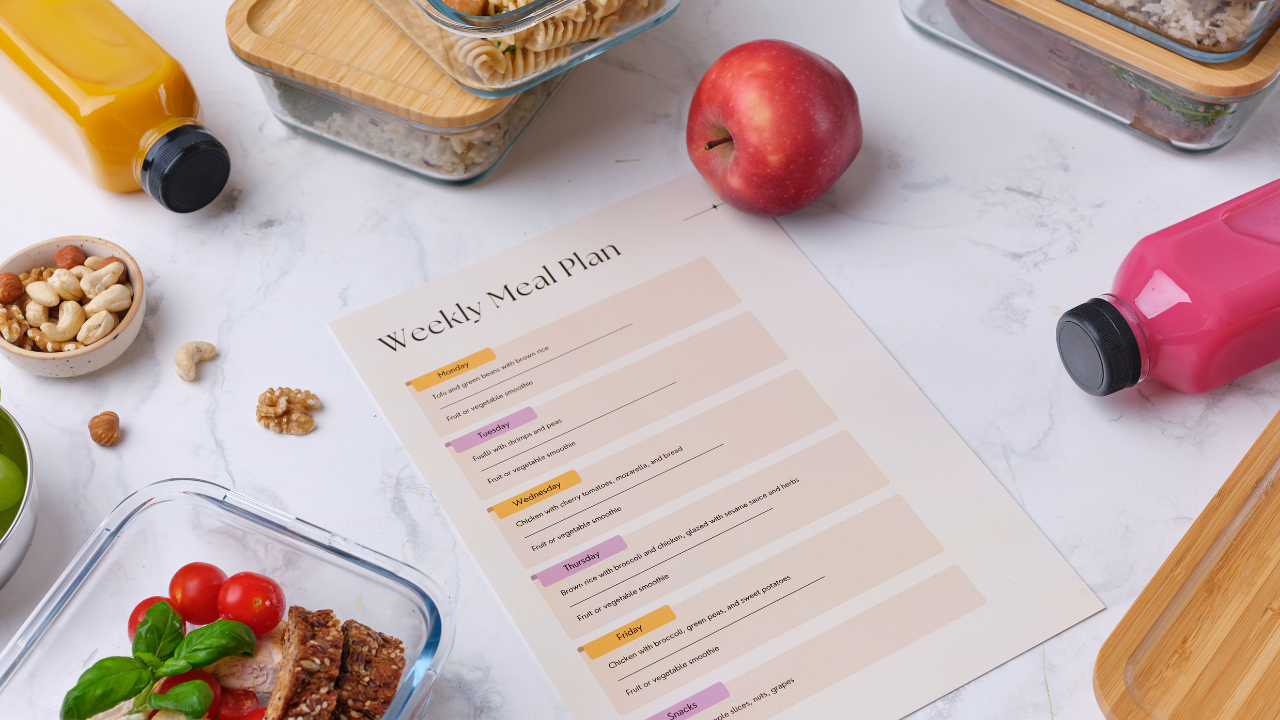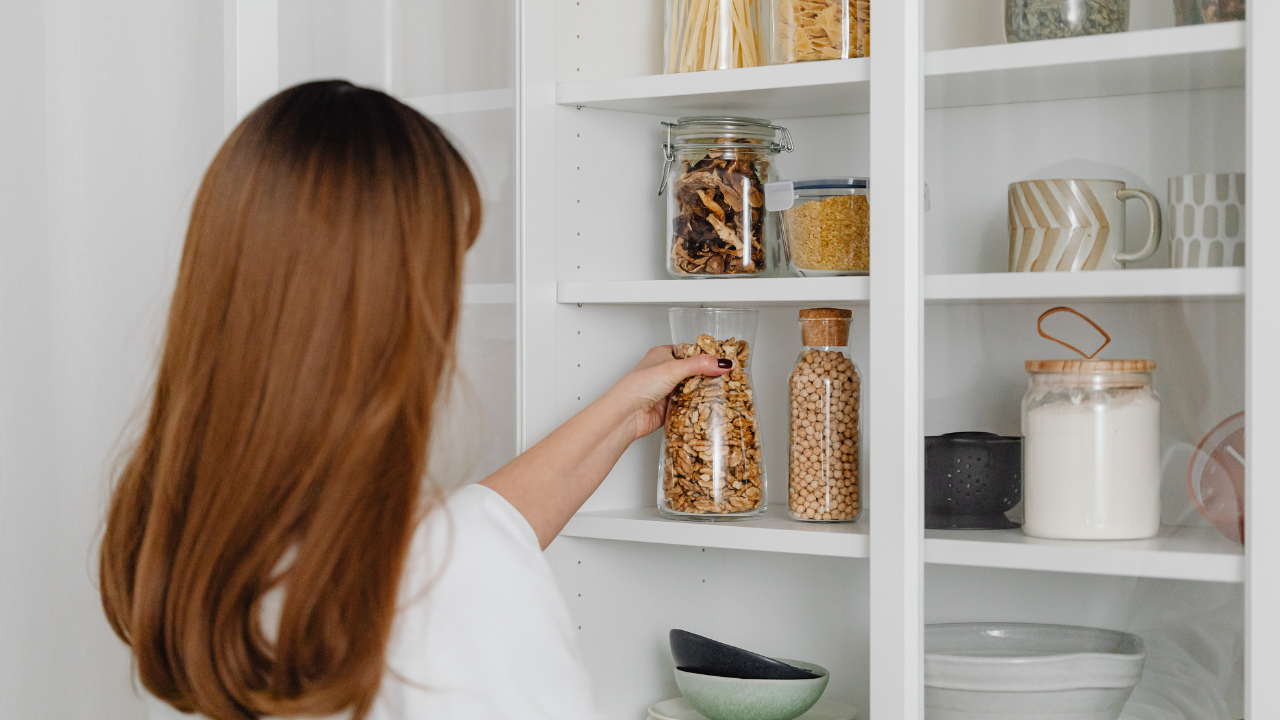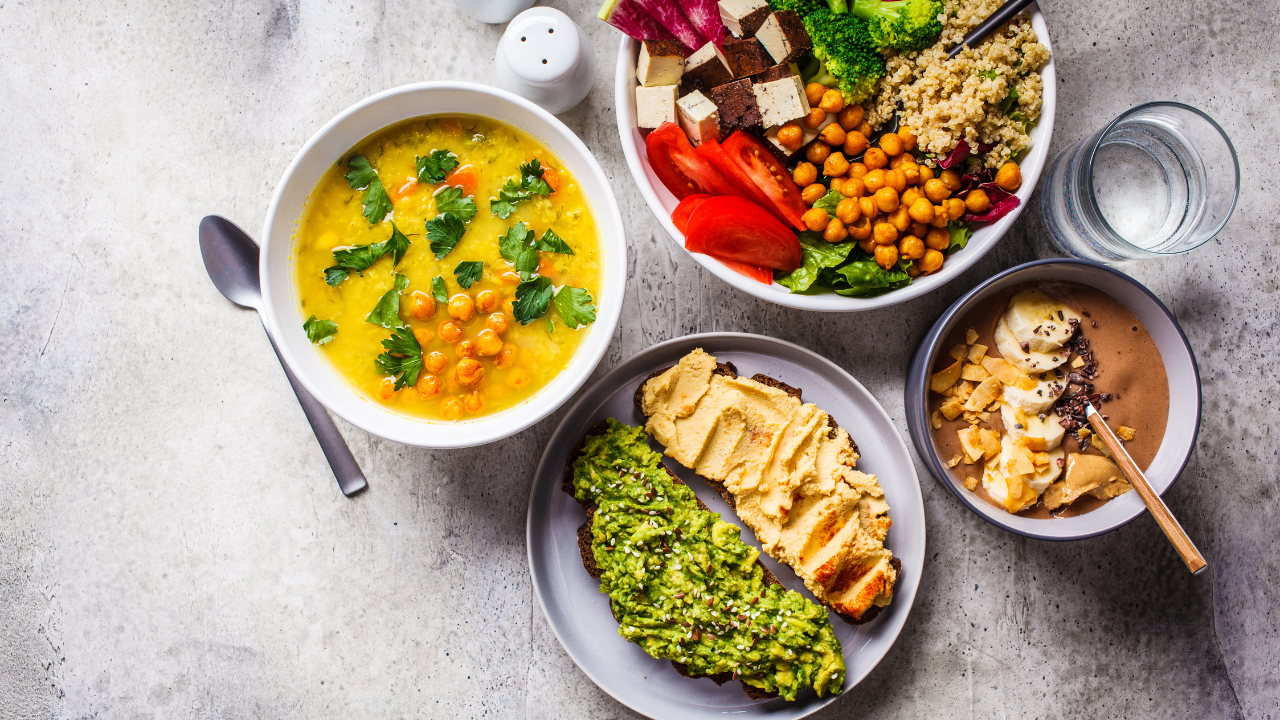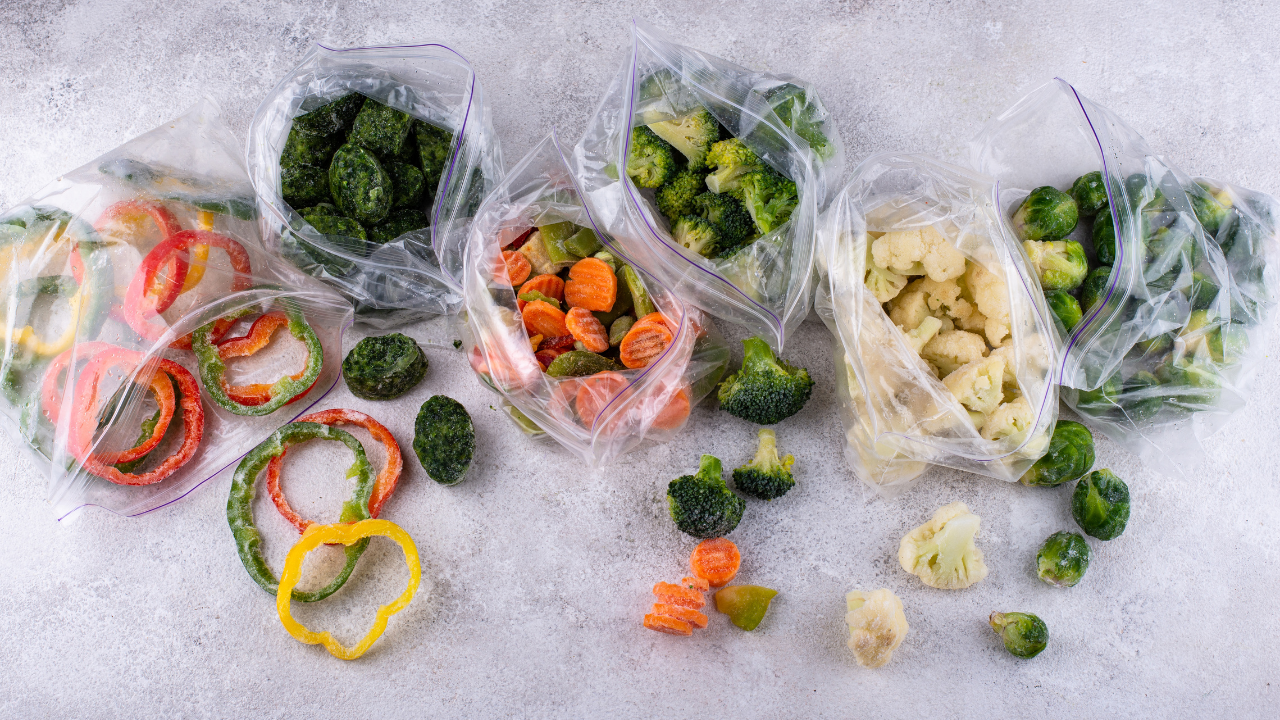9 Tips & Tricks to Eat Healthy on a Budget
While it’s commonly thought that healthy eating is expensive, with a little planning it doesn’t have to be! Here are my top tips as a Dietitian for eating healthy while on a budget.
Cook at Home
It’s no secret that preparing more meals at home can help you save on money. And since you are likely spending more time at home, now is the perfect time to work on your meal prep skills and get into a routine! Start with making a menu for the week to keep you on track.
Make a Weekly Menu
Avoid going in to your week blind. I suggest setting out a time each week to map out your breakfast, lunch and dinner meals for the week. Plan to cook 2-3 times, and make sure of the leftovers for the following lunch or dinner meals. Use this menu to guide your grocery shop for the week.
When you have your meals planned out, you are much more likely to stick to them (and less likely to resort to take-out or quick/ processed options).
Tips for making your menu:
Try out a digital meal planner template such as this one: https://www.unlockfood.ca/EatRightOntario/media/ERO_PDF/en/Menu%20Plans/MenuPlanningTemplate_en.pdf
Use a whiteboard meal planner (check out these ones on Etsy https://www.etsy.com/ca/market/dry_erase_meal_plan) and put it in your kitchen to keep you organized each week.
P.S, Want to save TIME, STRESS and MONEY while optimizing your gut health with a proven meal planning and prepping system?
Get my complete guide to Gut-Friendly Diet Meal Planning Mini-Course + Resource bundle!
Mind Your Pantry
When planning your weekly meals, look at the expiry dates of the foods and ingredients you already have on hand.
Ever heard the saying “First in, First out”? Use up what you’ve had around for a while, before buying more. Remember that food waste = wasted money.
Open your cupboards.. What do you need to use up? Try to make some recipes that use up those foods and ingredients.
Some examples:
Stale bread: try out this healthy french toast
Veggies close to going bad? Use them up in a veggie frittata
Rice and veggies: use make a buddha bowl – check out this link for a step-by-step guide
You may want to read: Getting Creative With Common Pantry Staples.
Shop in Season
Seasonal vegetables are often cheaper, and usually taste better too! Check out this guide from Foodland Ontario to help plan your weekly shopping around fruits and vegetables in season: https://www.ontario.ca/foodland/page/availability-guide
Make Leftovers Your Friend
Make extra portions of your meals to have for lunch or dinner the next day. Plan to cook once, and eat 2-3 times!
Find that you tire easily of leftovers? Try combining them in a different way using different spice mixes, condiments and sauces. Chicken and rice can be combined as a burrito bowl with shredded lettuce, chopped peppers & onion, guacamole & cheddar cheese. The same base ingredients (chicken and rice) can be made into a Mediterranean bowl with roasted chickpeas, hummus, & olives.
You may want to read: Getting Creative With Common Pantry Staples.
Don’t Overpay on Groceries
Plan out your shops to help save on groceries:
MONTHLY STOCK-UP
Once or twice per month, do a pantry and freezer re-stock. Go to your budget grocery store (such as No Frills or FreshCo) where pantry staples are likely to cost less than the premium stores (such as Loblaws or Longos) Stock up on canned proteins like tuna and beans, frozen fruits and vegetables, grains, and pasta. Purchase a few plant-based milks if you consume them, they generally keep for a few weeks at a time. No sense in overpaying for the same brand name items if you don’t need to.
WEEKLY SHOPS
Focus on fresh produce (fruits, vegetables) and proteins (dairy, eggs, meat, fish). For these items, you may choose to go to a higher end supermarket to get better quality. For fruits & veggies, I would also suggest doing a weekly delivery box to save on money and support your local farmers. Here are some of my favourite options:
- Food Share: https://goodfoodbox.foodshare.net/
- Mama Earth: https://www.mamaearth.ca/
- Harvest Planet: https://harvestplanet.ca/
Shop the Flyers
Plan your meals around foods that are on sale. Check store flyers & use this to make your menu and grocery list for the week. Choose fresh foods (like meats, fish, fruits & vegetables) on sale that you will use up for the week before it goes bad. Stock up on pantry staples like canned fish, beans, grains and frozen foods on sale to have to make quick meals in a pinch.
Get overwhelmed by the flyers? If you are shopping for 1 or 2, I would suggest circling 2 fresh proteins, 2-3 each fresh fruits and 4-5 different vegetables for the week ahead.
Have More Meatless Meals
Plant proteins are often cheaper than meats and fish. Beans, lentils and chickpeas can be used to make a one-pot meals and stews. Tofu is a lean protein that can be grilled, baked or stir-fried as a meatless alternative to beef or chicken. Eggs are another great option, try an omelet or fried eggs on a veggie-rice bowl for a quick dinner meal.
Try Frozen
Frozen fruits and veggies are just as nutritious, and often cost less than their fresh alternatives. Stock up on 3-4 different types of frozen fruits like berries, pomegranates, mango & vegetables like okra, green peas, cauliflower & Brussel sprouts. It helps to have these as a back-up in your freezer when you run out of fresh produce for the week.
My favourite ways to use frozen fruits and veggies:
Greek yogurt or overnight oats topped with frozen fruits (berries, cherries, pomegranate seeds)
Steaming mixed frozen veggies (broccoli, cauliflower, snap peas, carrots) dressing with lemon, salt & pepper
Adding frozen spinach or kale to smoothies
The Takeaway
Truth be told, prepping more whole foods at home is one of the BEST WAYS we can lower inflammation, improve our gut-health and microbiome, reduce bloating, attain our fitness & health goals, and support our longevity! But it does NOT need to be expensive, with some planning and strategy!
For more gut-friendly and fitness meal planning tips, be sure to follow along with me on instagram at leighmerotto_rd.
Do you have any grocery shopping on a budget strategies or hacks to share? Comment below - community collaboration is invaluable!



